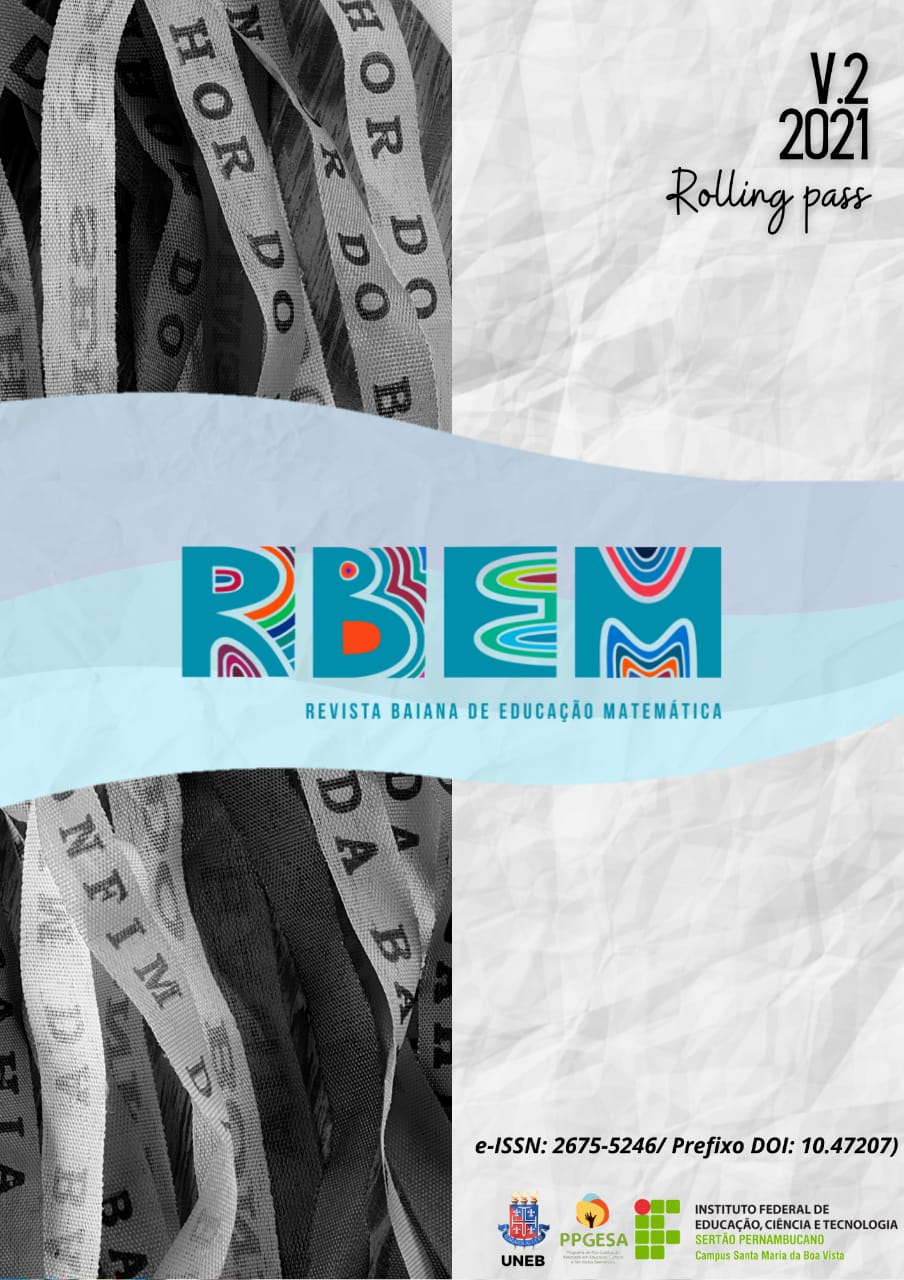Problem Solving as a teaching methodology in the Emergency Remote Internship
Main Article Content
Abstract
This study is the result of a qualitative research whose objective was to problematize different ways of solving a problem in a virtual environment, basead on the records proposed by mathematics undergraduates and elementary school students. We took as analysis focus the resolutions proposed by undergraduate students in Mathematics, in the Supervised Internship discipline, and in the 6th and 7th grade classes of a private elementary school in the State of Bahia. We proposed a problem-situation for students and, for future teachers. In that situation, we focused on using the problem solving methodology as a teaching methodology, following a specific guide. For development of this study, we used the analysis of the different ways, grouped by similarities, to solve the problem. Analyzing the resolutions of the elementary school students, we produced three categories: 1) trial and error; 2) algebra and 3) wrong resolution. In the case of future teachers, the produced categories were: 1) algebra; 2) setting values and 3) arithmetic progression. We determine that each subject involved in this study realized that strategies may be different, suggesting that students are subjects of their own learning. However, that difference makes sense only if the resolutions are socialized, and therefore being able to perceive diversity in the way they communicate. Although future teachers have greater mathematical knowledge, elementary school students used Logic and communicated their strategies in their mother tongue.
Downloads
Article Details
Uma nova publicação de artigo anteriormente publicado na Revista Baiana de Educação Matemática, fica sujeita à expressa menção da precedência de sua publicação neste periódico, seguindo as normas de referência. Autores que publicam na RBEM concordam com os seguintes termos:
-
O Conselho Editorial se reserva ao direito de efetuar, nos originais, alterações de ordem normativa, sintática, ortográfica e bibliográfica com vistas a manter o padrão culto da língua, respeitando, porém, o estilo dos autores. As provas finais poderão ou não ser enviadas aos autores.
-
Autores mantém os direitos autorais e concedem à revista o direito de primeira publicação, com o trabalho simultaneamente licenciado sob a Licença Creative Commons Attribution (CC BY-NC-SA).
-
Autores têm autorização para assumir contratos adicionais separadamente, para distribuição não-exclusiva da versão do trabalho publicada nesta revista, exemplo: publicar em repositório institucional ou como capítulo de livro, com reconhecimento de autoria e publicação inicial na RBEM.
-
Autores têm permissão e são estimulados a publicar e distribuir seu trabalho online — em repositórios institucionais, página pessoal, rede social ou demais sites de divulgação científica.
References
CURY, H. N. Análise de Erros: o que podemos aprender com as respostas dos alunos. Belo Horizonte: Editora Autêntica, 2007.
DINIZ, Resolução de Problemas e comunicação. In: SMOLE, K. S.; DINIZ, M. I. (org.). Ler, escrever e resolver problemas: habilidades básicas para aprender matemática. Porto Alegre: Artmed Editora, 2001. P. 87- 97.
ONUCHIC, L. R.; ALLEVATO, N. S. G. Pesquisa em Resolução de Problemas: caminhos, avanços e novas perspectivas. Bolema, Rio Claro (SP), v. 25, n. 41, p. 73-98, dez. 2011.
SANTOS, J. R. V.; BURIASCO, R. L. C. Uma análise interpretativa da produção escrita em matemática de alunos da escola básica. Zetetiké, Campinas (SP), v. 16, n. 30, p. 11- 43, jul./dez. 2008.
SMOLE, K. S.; DINIZ, M. I. Ler, escrever e resolver problemas: habilidades básicas para aprender matemática. Porto Alegre: Artmed Editora, 2001.
WALLE, J.A.V. Matemática no ensino Fundamental: formação de professores e aplicação em sala de aula. 6 ed. Porto Alegre: Artmed, 2009.

